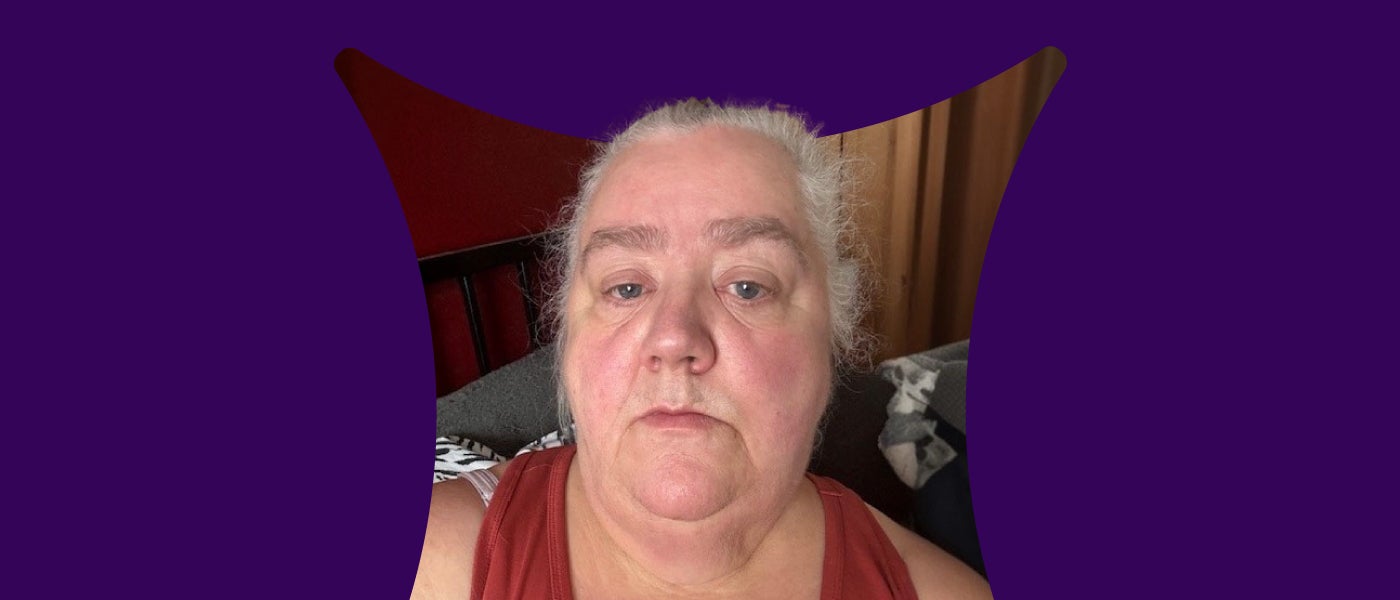- Home
- News and stories
- I've felt very pressured to make up for my hearing loss, now that meetings are conducted virtually
I've felt very pressured to make up for my hearing loss, now that meetings are conducted virtually
 18 November 2020
18 November 2020
I have severe bilateral hearing loss, wear two hearing aids, and rely on lip-reading and subtitles in my day-to-day interactions.
I am in full-time employment and I have been with my current employer for three years.
I’ve felt very pressured to make up for my hearing loss
At the start of the pandemic I was side-lined at work and redeployed into a lower-paid job, as I could not help with the video production and distribution that my usual role suddenly required.
My organisation produced un-subtitled video messages to staff and un-subtitled training videos, and I felt very isolated and frustrated.
I've felt very pressured to make up for my hearing loss, now that working from home has increased and more meetings than ever are conducted virtually.
My line manager tried to force me onto virtual meetings on Microsoft Teams, even when I explained that the live caption function wasn't good enough to help me follow multiple people at once using connections of varying quality.
At one point, another member of staff was sent to collect me and physically sit me down in front of their screen for a Teams meeting, but I couldn't follow it because one of the attendees had their camera turned off, and another was having sound issues.
I have to work harder than my non-disabled peers
When I was first redeployed, my manager told me that they no longer had the money to employ me at my previous level, and I didn't feel confident asking further questions, or raising the issue that I thought my redeployment was due to my hearing loss.
My redeployment has now ended and I'm back with my original team, but I am still on a lower wage than I was pre-pandemic.
I feel lucky to still have a job in the current market though, and I don't want to rock the boat by pushing too hard for answers. I've been treated far worse in previous jobs, and job-hunting is much more difficult for disabled people, so I will do everything I can to keep my current position.
I feel like I have to work harder than my non-disabled peers, in order to make up for being deaf.
I’m willing to wipe out my savings because of virtual meetings
My limited ability to use Teams has remained an issue, and I feel like the onus has been put on me to resolve that issue. Even now, I still feel under a great deal of pressure to adapt to our new ways of working.
I've now ordered in-ear hearing aids, because they can stream sound from my laptop/phone speakers directly, and also help me to wear hearing aids, a face covering and my glasses at the same time. They are unavailable on the NHS, and cost £2,650.
I felt very pressured to get these hearing aids - the promise that they might finally solve the problems that I have with virtual meetings is something to hold onto right now.
I’ve reached the point that I'm willing to wipe out my savings just to make my life liveable again.
Employers pass over disabled applicants
I'm concerned that I will be barred from progressing at work if I can't somehow be better at hearing.
Virtual meetings seem to be such a huge and ongoing part of our work, and even with additional help in place, like a palantypist, I find it very difficult to participate in them effectively.
I would be scared if I lost my current job, as many people are being made redundant right now, and the job market will be extremely competitive.
I know that by law potential employers cannot discriminate against me because of my hearing loss, but in practice I think many employers pass over disabled applicants, as they are worried about the inconvenience and expense of providing reasonable adjustments.
Disabled people are not expendable
There needs to be more empathy, patience and adaptability.
There's no one-size-fits-all solution to making the 'new normal' accessible, and what would really help empower and engage disabled people right now is being consulted and listened to as new measures are put in place.
At the moment it's the wrong way round, with changes being made that reduce accessibility and disabled people then having to fight to be included again.
Disabled people are not expendable, and we should not be treated as necessary casualties in the mad dash to kick-start the economy again at all costs.
You could learn so much from us if you gave us a seat at the table and listened to our experiences.
Read more about our campaign to ensure disabled people are included in government plans and take action.
Together we won’t let disabled people be forgotten. #WontBeForgotten
 18 November 2020
18 November 2020








